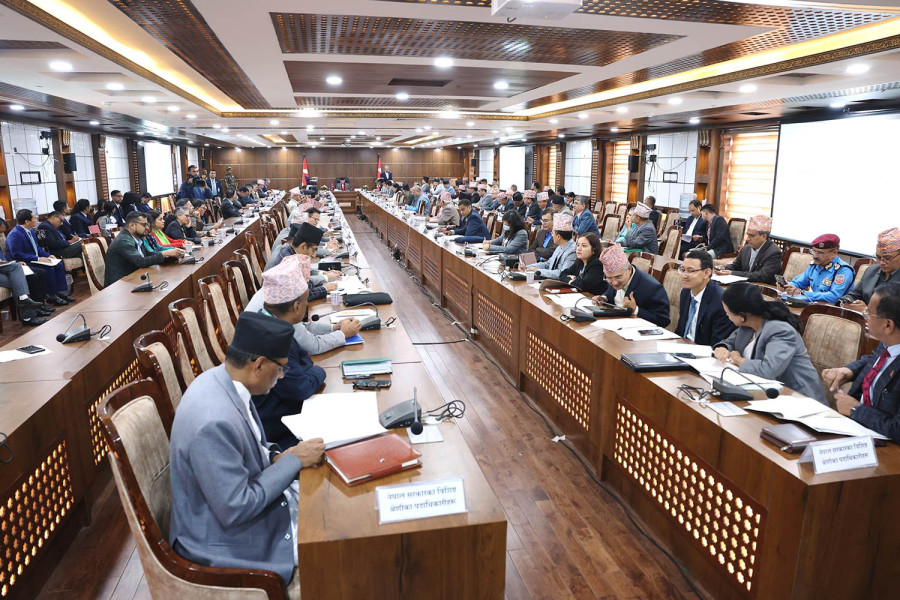Politics
Provinces press prime minister over unmet demands for key powers
Chief ministers say delays in police adjustment, civil service law have stymied provinces.
Binod Ghimire
The seven chief ministers have together called on the federal government to implement the 17-point charter of demands they presented last year.
Expressing their concerns at the meeting of the National Development Problem Solving Committee led by Prime Minister KP Sharma Oli, they said fulfilling the demands was a must for the provinces’ effective functioning. In July last year, a delegation of seven chief ministers had presented their demands that ranged from deployment of civil servants, promulgation of laws, and revenue sharing.
“We jointly called for implementing the 17-point demand, most of which remain unimplemented,” Satish Kumar Singh, Madhesh chief minister, told the Post. Their key and longstanding demands include adjustment of Nepal Police in provincial police and promulgation of the Federal Civil Service Act. Although maintaining law and order falls under the exclusive authority of the provinces, successive federal governments have delayed the adjustment of the police.
Other demands include transferring ownership of land and buildings being used by provincial entities to the respective provinces, and deployment and transfer of the officials in coordination with the provinces. Provinces have been complaining that frequent unconsulted transfers of principal secretaries, secretaries and other staff adversely affect their performance.
They have been demanding that an arrangement should be made whereby the federal government sends secretaries at the provincial ministries and chief administrative officers at the local units, with the provinces retaining the ultimate authority to assign them duties. Currently, the federal government deploys them directly.
“The provinces are facing unprecedented burdens from natural disasters. We have demanded proper support and response from the federal level,” said Singh. Promulgation of the remaining federal laws to delegate the exclusive and concurrent authorities to the provinces, as well as amendments to existing laws to ease land acquisition for development projects and establish industrial areas, are the other demands of provincial governments.
They also asked for amendment to the Local Government Operations Act to ease revenue sharing from river-based resources between local and provincial governments, and revisions to the Forest Act to allow them to use national forests. The Madhesh government has even filed a writ in the Supreme Court demanding authority over forest management, but the case has been pending for years.
Likewise, repeal of the Urban Area Public Transport (Management) Authority Act-2022, to enable provinces to collect revenues from traffic rules violation, is another demand.
During Friday’s meeting, the chief ministers also expressed frustration over delays in obtaining clearance from the forest ministry, which they said hinder development efforts. In response, Oli said he too was concerned about the delays in development works due to lack of permit in the use of forest covered areas.
“Forest-related agencies should facilitate development efforts while also working to protect forests and environment,” said Oli. “They are not expected to create barriers in development efforts.”
Addressing the meeting, the prime minister claimed that running an effective, competent and transparent administration while also addressing the public grievances was the top priority of his government.
“We must work with determination and make bold decisions. Modernisation of agriculture and encouraging the private sector are essential to increase production and productivity. Actions that intimidate or insult entrepreneurs, or those that reward negative tendencies, must be strictly discouraged,” said Oli. “We need to create an environment conducive to investment in trade and industry.”




 19.12°C Kathmandu
19.12°C Kathmandu















